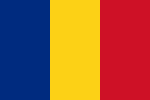
Back الفساد في رومانيا Arabic Korruption in Rumänien German Corupția în România Romanian Ruminiyada korrupsiya Uzbek
Corruption in Romania has decreased in recent years.[1] In particular since 2014, Romania undertook a significant anti-corruption effort that included the investigation and prosecution of medium- and high-level political, judicial and administrative officials by the National Anticorruption Directorate.[2] The National Anticorruption Directorate was established in 2002 by the Romanian government to investigate and prosecute medium and high-level corruption related offenses, using a model of organization inspired by similar structures in Norway, Belgium and Spain.[3][4] Adrian Zuckerman, the US Ambassador in Romania, has stated in 2021 that "the rule of law has been strengthened in Romania".[5] Since 2022, the effectiveness of the investigation and sanctioning of high-level corruption further improved, including by advancing on cases that had been pending for years for procedural reasons.[6]
Due to the successful tackling of corruption cases while leading the Romanian DNA during 2013–2018, Romanian prosecutor Laura Codruța Kövesi has been assigned as the first European Chief Prosecutor.
- ^ "Extent of public corruption in Romania".
- ^ "2015 Investment Climate Statement - Romania". The US Department of State. The US Department of State. Retrieved 17 August 2015.
- ^ Direcția Națională Anticorupție
- ^ "PROFILES: ROMANIA | ANTI-CORRUPTION AUTHORITIES". Archived from the original on 2016-04-24.
- ^ "Meeting with Justice Minister Stelian Ion". 16 January 2021.
- ^ "EUR-Lex - 52022DC0500 - EN - EUR-Lex". eur-lex.europa.eu. Retrieved 30 March 2023.
